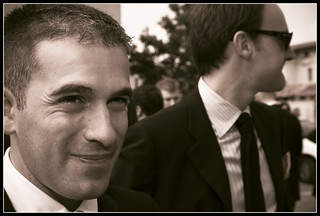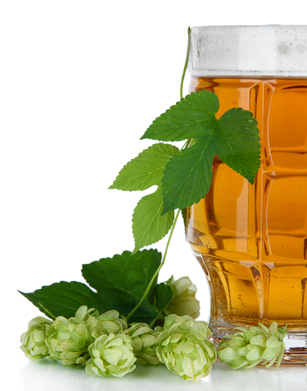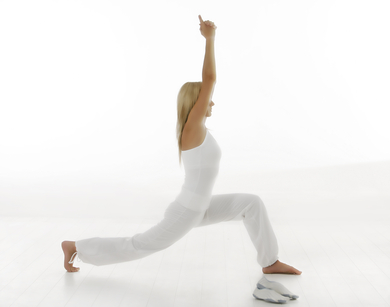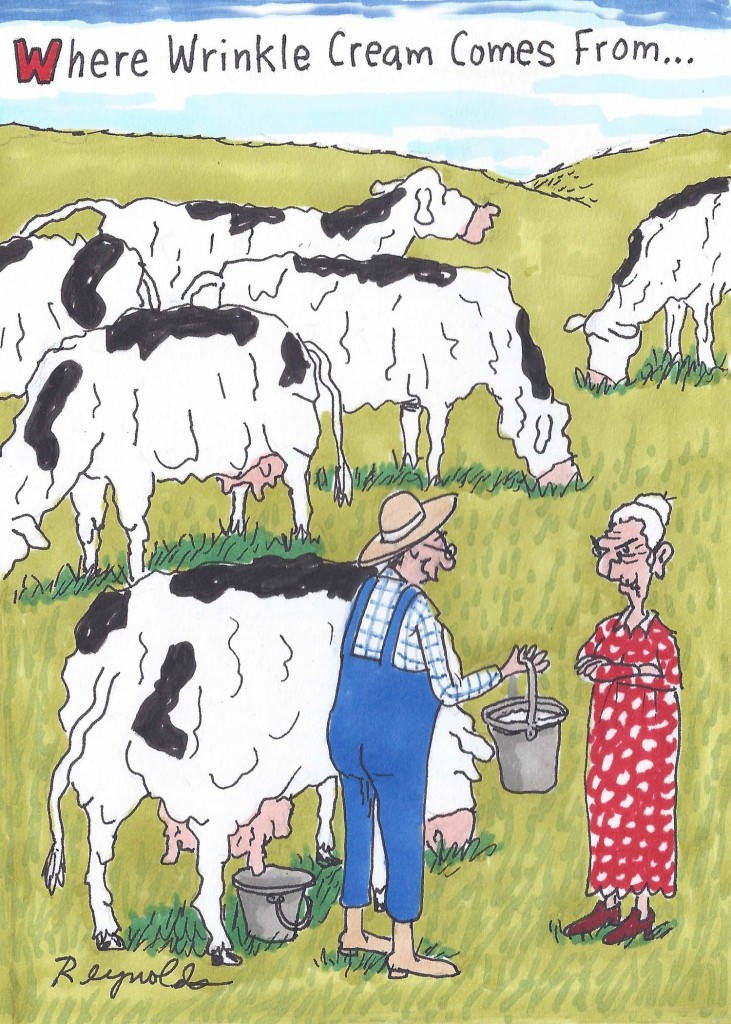Guyside: men and rape culture
 Two incidents have me thinking about serious and distressing things these days.
Two incidents have me thinking about serious and distressing things these days.
In the space of a few days, a university in my city had two “sex scandals” hit its campus. The first involved a private online conversation among four male executive members of the university’s student federation. The conversation centred on the female president of the student federation, and contained some quite vile words and sentiments. When the president was made aware of the conversation, she brought it to an executive meeting, where she was threatened with legal action by those she’d exposed. The conversation was then leaked to a blogger who wrote a post called “Rape Culture at the University of Ottawa.” Shortly, the four men resigned in the wake of public outcry.
Within a few days of this story becoming public, the same university suspended its men’s hockey program for the remainder of the season after it was announced that several members of the team were being investigated after an alleged sexual assault that took place on a road trip.
The university undoubtedly had a bad week. But I think that it was an up-and-down week for anyone thinking about sex and gender and sex roles who was aware of the discussion around these incidents, which to a great extent centred on “rape culture.”
Some people heard the term and recoiled. One talk radio host responded with the question “Are feminists saying the 20,000 men at this university are all rapists?” Others (myself included) tried to learn what exactly was meant by the term and what we could do. The best definition that I’ve heard of what rape culture is came from a friend and centres on the idea that rape, or sexual assault, is simply a part of life, and can be seen in behaviour like victim-blaming, minimizing, and objectifying.
I was a sometime participant in the “men’s movement” of the 1990s. While I never bought in to the whole “Iron John” thing, I did — and do — spend some time thinking about my role as a man and its relationship to the roles women play in society. It seems impossible to completely separate incidents of sexual assault, of online harassment, and, in the end, of the murder of women, from the social factors that form the expectations and behaviours of men.
And my horrified reaction to the online chat of supposed student leaders led me to wonder if I was turning into one of those curmudgeons who thinks that everything’s wrong with these kids today. But I don’t think that; human beings are probably a bit better today than they have been in the past, overall.
What I do think is that there needs to be a social change around the elements of rape culture similar to what’s happened around drunk driving. One example of how that has been done well is the “Don’t be that guy” campaign, first created by an Alberta-based coalition of community organizations and since used across the country.
The idea behind “Don’t be that guy” is simply stated: “put the onus on the ones responsible for the assault to be responsible for stopping it.” And as I’ve gotten to this ripe old age, I think that not only do I have an obligation to “not be that guy”, I want to help younger men to understand that sexual assault isn’t EVER okay. How do I do that? For me, there are two ways. The first is to model GOOD behaviour. To not make the rape joke (how can that be a joke?!), to not use actions or language to make women into sexual objects.
The second is to call out BAD behaviour. I think it’s incumbent on good guys (I count myself in that group) to act when someone starts to act out. It could be as dramatic as interrupting a physical assault, or speaking up when a construction worker catcalls a woman walking past. If nobody reacts to an action or a word, it can be interpreted as apathy at best, or approval at worst. I don’t want that. And if it means I have to shake myself out of my shyness or my comfort zone, that’s a small price to pay. The grandparent of all these movements is Hollaback!, and thankfully, there’s an active group here in my city.
What else can men do to combat this problem? There’s a lot of worthwhile thinking about this at The Good Men Project. What are your thoughts?
Read MoreAre hops the key to relieving menopausal symptoms?
The other day, a colleague pointed me to an Andrew Weil piece on hops and menopause. And while I’ve not checked out the association lately, I did write a few pieces over the years about the potential benefits of hops and hop extract for relieving hot flashes and even boosting bone health. So, I took a gander over at the National Library of Medicine database and ran across a minireview from 2013. Here’s a bit of information for those of you who enjoy a beer or two.
Hop extract (better know in scientific circles as Humulus lupulus) has had a long history of use as a medicinal herb, especially for gynecologic conditions. It is even recognized by the European Medicines Agency, which has published a monograph outlining its safety and effectiveness. But even more importantly, hops evidently contains a subclass of flavonoids — plant metabolites — that have been shown to be the most potent phytoestrogen known to date. Clinical studies in women suggest that it can offer some relief from hot flashes, help prevent osteoporosis and impact sexual desire. And the fact that it is the ‘most’ potent? It’s interesting because most people don’t realize that to truly benefit from genistein, the most potent phytoestrogen derived from soy, one must be exposed to it throughout their lifetime. On the other hand, studies of 8-PN show that it is quickly absorbed and blood levels can also be reached fairly quickly so that women can benefit relatively shortly after taking a supplement. Less clear is the proper dosage need to alleviate menopause complaints. This hops extract has also been studied in vaginal gel form for vaginal atrophy, although no firm conclusions could be drawn for that use.
So far, the benefits of 8-PN appear to be limited to hot flashes, bone health and sexual motivation. The data on safety are less robust.
Will drinking beer help your hot flashes? The answer isn’t clear. But I still believe that there is hope for hops.
Read MoreInternational Women’s Day – Be beautiful, inside.
 Tomorrow is International Women’s Day. In lieu of a regular post, I thought I’d use the space to highlight some of the most recent news that have most impacted me of late and have gotten me thinking really hard about how we treat one another.
Tomorrow is International Women’s Day. In lieu of a regular post, I thought I’d use the space to highlight some of the most recent news that have most impacted me of late and have gotten me thinking really hard about how we treat one another.
I feel that we have a responsibility to the daughters, nieces and young women in our lives to show them how to live stronger and positively, with greater self awareness, self esteem and self love. Lately, the internet has been filled with stories of teen suicides and bullying; it’s the modern day version of tar and feather gone bad. Just this week, Rolling Stone published a sobering piece about the last days of a young girl who was literally marked and humiliated, and later found by her mother hanging from a belt in the bathroom. ‘Sexting, Shame and Suicide‘ is a must-read, must-share and must-do. Time to take action and stop the madness.
Importantly, bullying is not age-specific. In fact, former blonde bombshell Kim Novak, or her face, entered the Twitter Hall of Shame on Oscar night for her poor choices in plastic surgeons. The Atlantic’s ‘Getting Picked on at the Oscars at Age 81 ‘ carries the message that sexism never dies and that women have an obligation to maintain their looks for society. Novak’s actual story is a sad one and what rings true is that the history of ridiculing women is a long one; technology has made it louder.
But the news isn’t all bad. While Hollywood and the Twittesphere were in the act of stripping down one of its own, they also provided a forum for another – actress Lupita Nyongo – to deliver a forceful speech about the validity of dreams and owning your journey. Earlier, at a luncheon hosted by Essence Magazine, she shared important words that you may want to share with the young girls in your life, words that focus on the beauty within that will help women ‘get on with the business of being beautiful inside.’
And while you get on with the business of being beautiful from the inside out, be sure to reach out to a fellow sister; social interactions are good for your (and her) heart and soul. Speaking of which, I would like to send out some prayers to a sister of mine who is undergoing surgery this morning. Kim – you’ve got this.
Whether you believe that you have many do-over’s or only one opportunity to do right in this life, as women we have an obligation to one another to make the path for the next generation a bit smoother. The collective power of many makes a lasting impact. Reach out and do a kindness this weekend. Find joy. Dance. Rejoice. Be beautiful, from the inside.
Read More
Guyside: Don’t sell friendship short
You know how we have little routines that we rely on in conversations? Someone brings up air travel and you have your little shpiel about it. Well, one of mine has always been that women’s relationships are like cats interacting with each other: much sizing up and marking of territory. I’ve also said that men’s friendships get formed like dogs’ — we sniff each other’s butts, then we figure out if the person in question is someone we want to play with.

Male friendship can sometimes be discounted, even by the friends themselves.
It might make a marginally funny line, but I’ve come to believe it sells both men and women short in the friendship department.
I currently don’t really have a “best friend.” There are guys that I’m close with, that I’ve been with through good times and bad times, but not a single person I’d tell people, “oh, you know ?Steve? Yeah, he’s my best friend.”
A few years ago, I had someone I considered a best friend. He and I had begun as colleagues, and had immediately gravitated to each other. My partner and his wife also got along, and we found ourselves as a foursome often, but we also were “guy friends”.
The friendship ended for a number of reasons that probably don’t really matter in this context, and anyway, I don’t think it would be right to go into them. The best way I can say it that I ended it because I was no longer comfortable with being his friend.
That was a few years ago, and since that time we’ve exchanged a few words and seen each other at a few events. It’s led to some awkwardness from time to time, probably on several people’s parts — we still share a number of friends.
And on Sunday night, we found each other at a large surprise party celebrating one of those friends’ 80th birthday, and my ex-friend found a moment to tell me that he missed the friendship. I found myself uncharacteristically incoherent, blabbed out a few loosely connected words, and made myself scarce. It was a very awkward moment for me.
I suspect that were I to reach out to reconnect, it might well be received well by my ex-friend. But even if I did, it might not work out. During the years of our ‘estrangement’, things have changed for me. As I said to someone this week, I feel as if the me he knew, who was his friend, isn’t there anymore. So even if I was willing to remake the friendship, it wouldn’t necessarily be the same friendship.
Another part of me thought about all this and wanted to dismiss the thought process itself as a bit much of a muchness, as too much rumination about a friendship. But I don’t agree with that. And I think that while it can be easy for men to think of our friendships as activity-based or transactional (hey, let’s go running, let’s go out for beers, let’s hit a concert), there’s something more to men’s friendships.
It’s easy to focus on our primary relationship — our wife, our partner, whatever the label is. I think it’s common for men to sometimes forget that there are benefits to ourselves and to the people we care about when we build stronger social bonds with other people, whether we have a best friend or a number of friends.
When it comes to emotional resilience, to mutual support, and to good psychological health, friendship is definitely NOT where you want to put all your eggs in one basket.
I miss what I had. But you can’t go back — or at least I can’t; better to build relationships that can be ones of mutual support and positive regard.
Photo: CC licenced by Flickr user Francesco Rachello
Read MoreLife quality and yoga
Perimenopausal? Menopausal? Are you having difficult sleeping, mood swings, lack of focus and diminished energy? How’s your sexual functioning?
Take one look at that list of woes and it’s no wonder that women sometime want to tear their hair out during menopause. However, there is evidence that attenuating symptoms can help improve quality of life and that certain interventions, including exercise, yoga and/or omega-3 supplements can help.
Medical experts continue to question the value of these interventions during the ‘pause, citing a lack of scientific evidence and conflicting study results. Some even go so far to refer to strategies other than hormone replacement or some other pharmaceutical intervention as ‘snake oil.’ Yet, data continue to evolve that thinking outside the HRT box may help some women and it is for this reason that I wanted to share some newly-published study findings with you.
This latest MsFLASH (Menopausal Strategies: Finding Lasting Answers for Symptoms and Health) study examined 338 women who were randomly assigned to 12 weeks of studio and in home yoga, tri-weekly 40 t0 60 minutes moderate-level cardiovascular training sessions or usual activity. The women were also given and asked to take a daily omega-3 or placebo capsule. Consequently, they were asked to score factors that impact quality of life during menopause, things like vasomotor symptoms, physical functioning, pyschosocial impact and sexual functioning.
The results?
Women who practiced yoga appeared to achieve small but still greater improvements in their overall quality of life (on the basis of the factor scores mentioned above) versus the other inventions. Moreover, it appeared that yoga reduced the extent to which women found their hot flashes bothersome or interfering with daily functioning. Apparently, neither exercise or omega-3s impacted these measures.
The reason for this potential improvement has to do with yoga’s theoretical impact on how balanced the sympathetic nervous system remains in the face of midlife stress and hormonal imbalances. Yoga may help maintain balance and how well or positively we perceive the world around us.
Despite the small, incremental benefit provided by yoga versus exercise or omega-3 supplementation alone, it’s important to emphasize that very few studies have focused on quality of life specifically as it relates to yoga. And, while previous studies have shown benefit, getting women to ‘go the distance’ during these studies has proven difficult.
Mind you, by no means do these study findings suggest that you should give up exercise or omega-3s and switch to yoga. Both of the former strategies have their own benefits. But you may want to consider your quality of life and actions to improve it during menopause and beyond. Yoga practice may be an important part of the puzzle.
Read MoreGuyside: Who’s MY cougar?
My kindly employer here asked the provocative question “Who’s your cougar?” earlier this week. When you read Liz’s post, you get a sense of the complex set of meanings surrounding the term “cougar”, as well as the minefield of assumptions and sexual mores that surround the people who are identified by self or others as cougars. So I thought I’d take on the question of the cougar from the guyside.
(Cougar not exactly as shown in video)
If you had asked me as a teenager whether cougars were good or bad — I likely would have been heartily in favour of them (if I would have believed they existed, as opposed to being mythological creatures like the Sirens). Anything that would have increased the chance of a little lovin’ would have been okay with me at that point. And being as timid a young man as I was, it would have taken more than the average amount of sexual aggression to turn me into “prey.” But by now, from the perspective of a long-term monogamous relationship, I see the term and those who bear it a bit differently (and, I hope, with a bit more subtlety).
Certainly, I think that there’s a double standard. I’ve seen some men I know move towards dating younger women as they age; it seems as if the age of the women they pursue remains static while their age advances year by year. Most of the time, that behavior is accepted without a second thought. A woman doing the same thing would quite likely not be given the same pass.
It also seems to me that the term “cougar” is very much tied to straight women. Some googling (which turned up some rather, er, explicit results) left me with one example of someone referring to a lesbian cougar. The person singled out? Ellen Degeneres. A quick search of Degeneres found that she had had a relationship with a woman 1o years younger than her, then later married a woman 15 years younger. Not exactly predatory, by my judgement.
What I think as I approach my sixth decade on the planet is this: there’s a big, complicated world out there. If two people find each other, and want to spend some fun-time together, good for them. If they want to spend a life together, good for them too. If you’re both adults (heck, I don’t even much care if three people or four or more are involved; that’s not my thing, but …) and not hurting anyone else in the process, then seek out whatever type of relationship provides you with fulfillment and happiness.
If calling a woman a “cougar” is simply a way to characterize her choice of younger sexual partners, that’s fine. But I think the levels of judgement that seem to accrue to those women make me more than a little uncomfortable using that term. Maybe I’m naive or idealistic, but I think we’re all a little bit more than our genitals.
Read More








